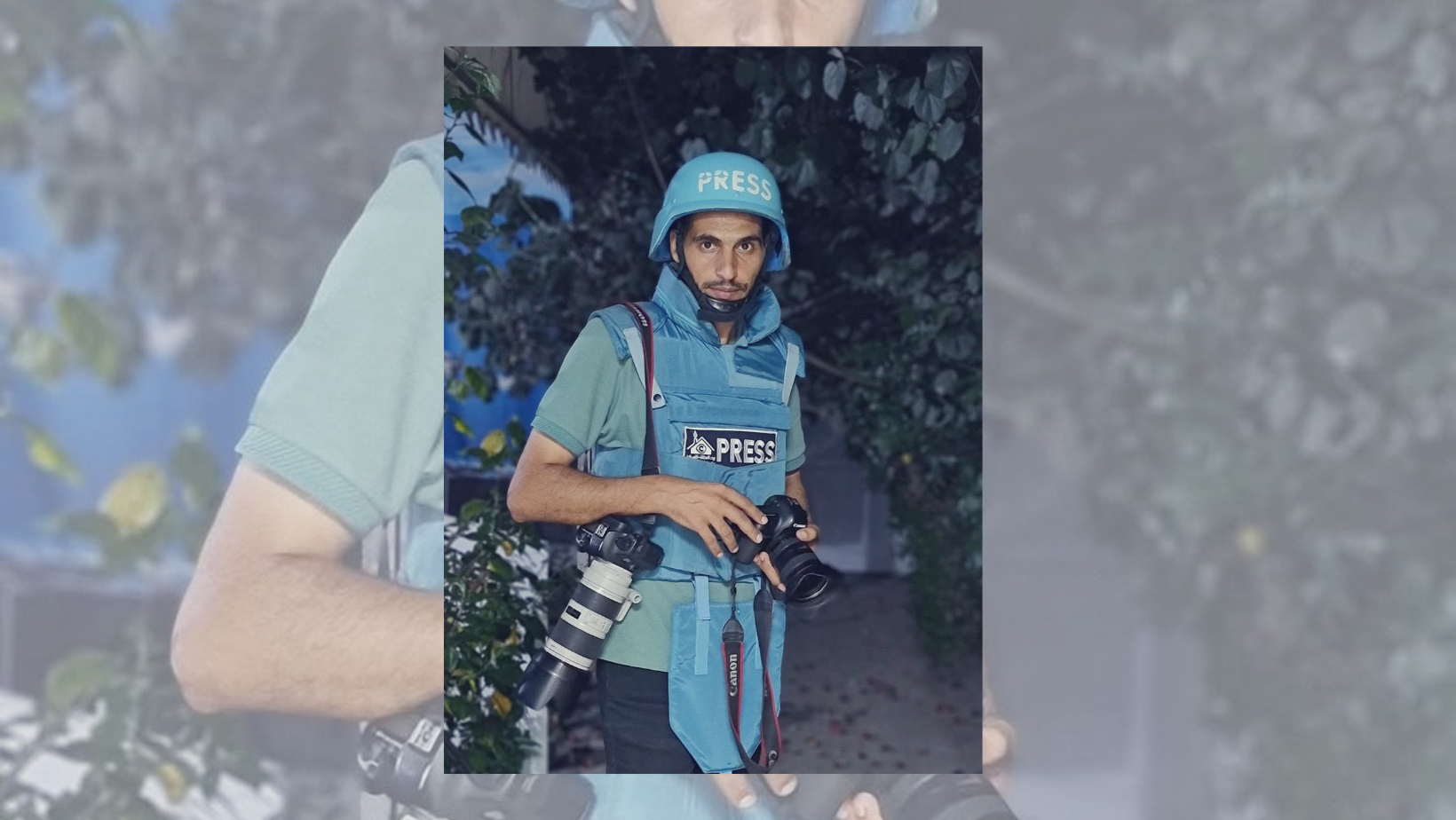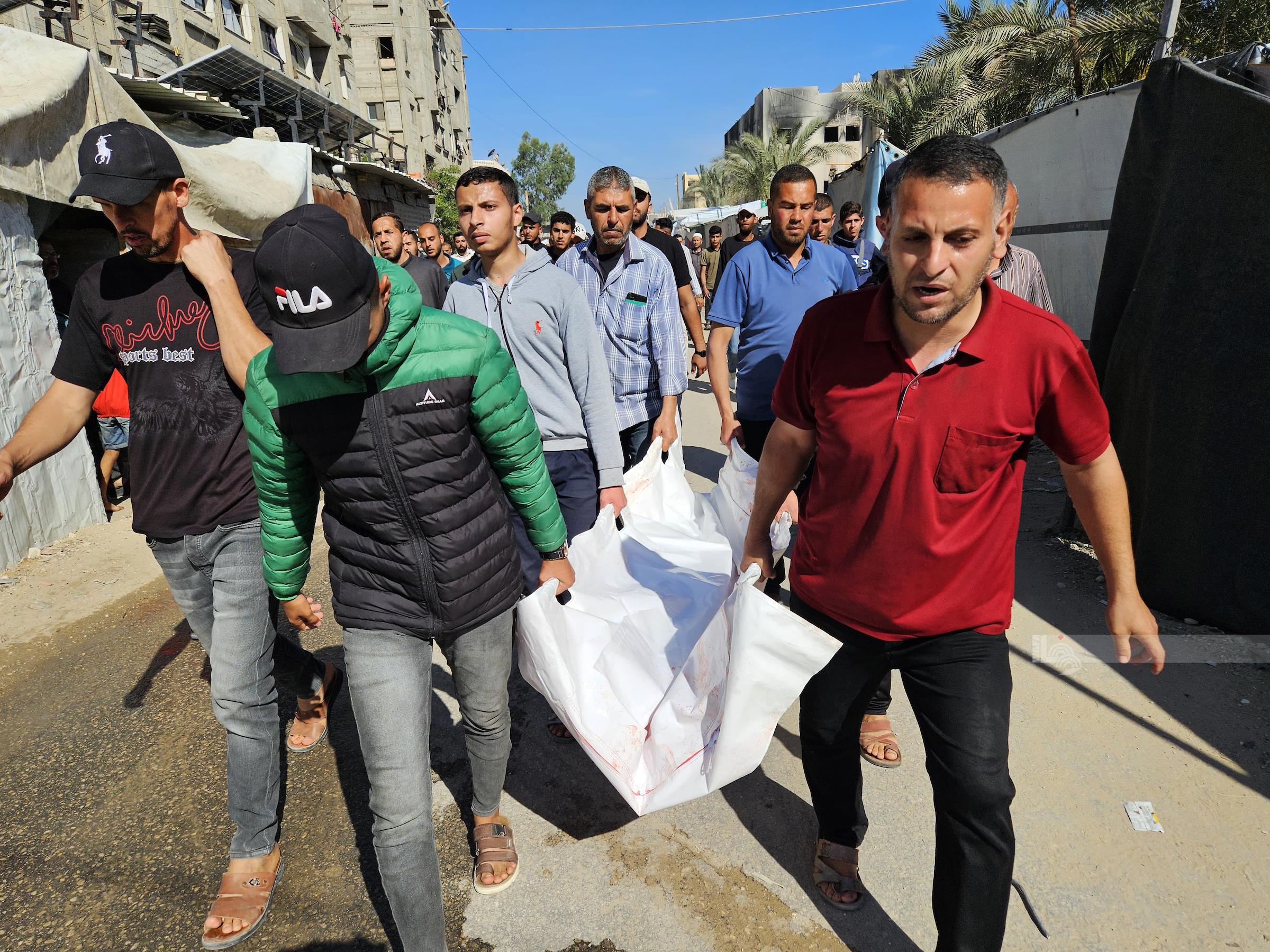KHAN YOUNES, May 7, 2016 (WAFA) – Israeli aircraft early Saturday pounded the southern Gaza Strip as the worst flare-up of cross-border violence since 2014 entered a fourth day, said WAFA correspondent.
Israeli F-16 aircraft targeted farmlands in al-Zanna and al-Fakhari localities, east of Khan Younes, causing massive holes and spreading panic among Palestinians.
Israeli artillery fired three shells at farmlands, east of Rafah, in the southern Gaza Strip, while aircraft and surveillance drones continued to hover at low altitudes.
AFP reported that there was no immediate claim of responsibility for the rocket launch and most such fire since 2014 has been carried out by fringe Islamist groups, but Israel holds Hamas responsible for all such attacks.
"Earlier today (Saturday)... a rocket was fired from the Gaza Strip at southern Israel," Israeli army said in a statement.
"In response... aircraft targeted two Hamas terror infrastructures in the southern Gaza Strip."
This came two days after an Israeli tank shell killed a Palestinian woman when it hit her home east of Khan Yunis.
Some Palestinian militant groups have reportedly fired mortars at Israeli forces which infiltrated 100-150 meters into Gaza purportedly searching for infiltration tunnels leading into Israel. The last of such tunnels was uncovered by the Israeli forces on Thursday.
The Israeli army said it had “no interest whatsoever” in a military escalation, but would continue to act against Hamas as “it continues to breach Israeli sovereignty and build tunnels.”
Deputy head of Hamas’ politburo Ismail Haniyeh said on Friday that while the movement is not calling for a new war in the Gaza Strip, it will not tolerate ]incursions by Israel[ or for new realities to be imposed on Gaza.
He reportedly affirmed that Hamas is making contacts with a number of actors and mediators to stop the Israeli incursion into Gaza.
Israeli forces have frequently been infiltrating into the blockaded strip on an almost daily basis with military bulldozers leveling farmlands and forces opening at farmers approaching borderline farmlands in a grave violation of the Egypt-sponsored 2014 ceasefire deal.
The deal put an end to the 50-day Israeli onslaught on Gaza that left 2,251 Palestinians and 73 Israelis dead in 2014 and displaced 475,000 Palestinians.
Israel has maintained a severe economic blockade for almost a decade following Hamas’ victory in the 2006 Palestinian elections and takeover of control in 2007.
Israeli longstanding restrictions on the movement of people and goods to and from the coastal enclave have undermined the living conditions of 1.8 million Palestinians in Gaza. Israel prevents all access to and from Gaza by sea and air. Movement of people and goods into and out of the strip is restricted to three crossings: Rafah crossing, Erez crossing and Kerem Shalom crossing.
Israel has occasionally banned the entry of construction materials, mainly cement, obstructing the reconstruction works in Gaza under the pretext that it was used by Hamas for military purposes.
A major survey published by the UN Office for the Coordination of Humanitarian Affairs (OCHA) found that 75,000 Palestinians are still homeless after their houses were destroyed during the 2014 Israeli onslaught on Gaza. The onslaught completely destroyed 12,000 houses and partially destroyed 160,000 others.
In a meeting to discuss the challenges to Gaza reconstruction in April, Premier Rami Hamdallah urged foreign donors to “make good on their pledges” about two years after the Israeli onslaught destroyed 12,000 houses and partially destroyed 160,000 others.
“Almost two years have passed since the end of the Israeli war on Gaza, and a large number of Palestinian families still suffer the consequences,” he said.
Foreign donors pledged $1.4 billion, but according to the World Bank only 40 percent of that has been disbursed.
K.F.











